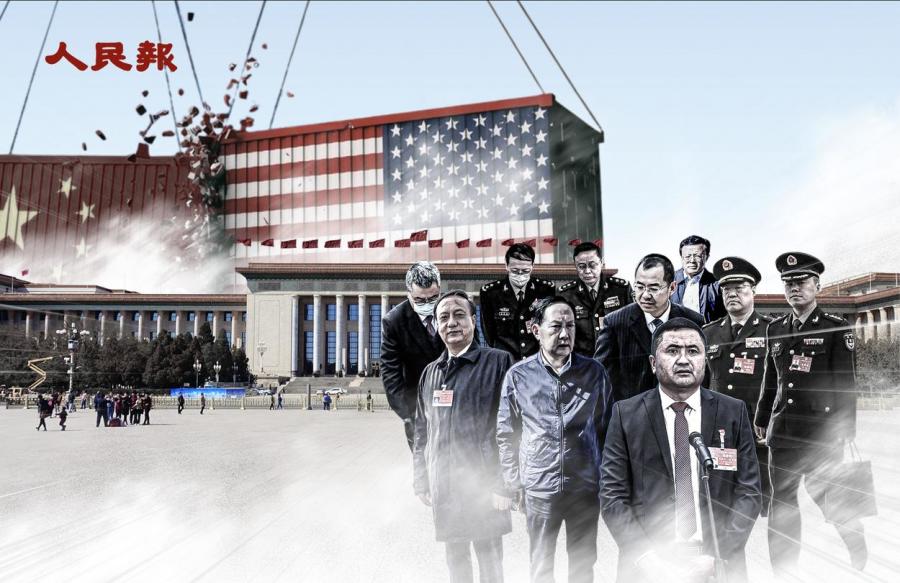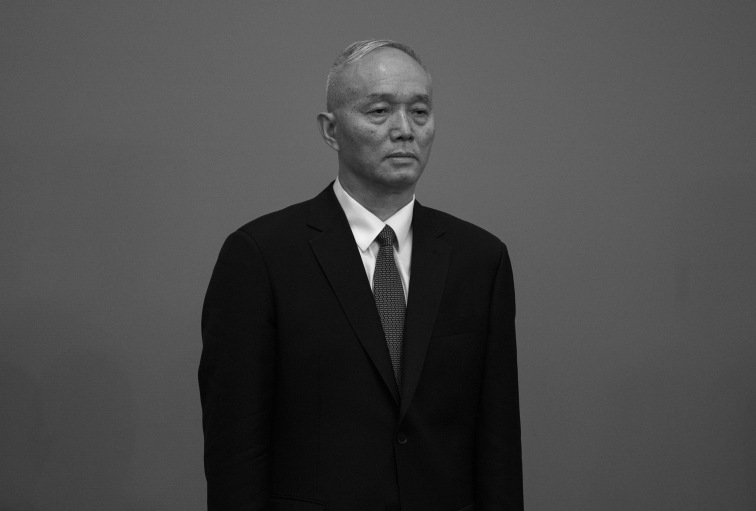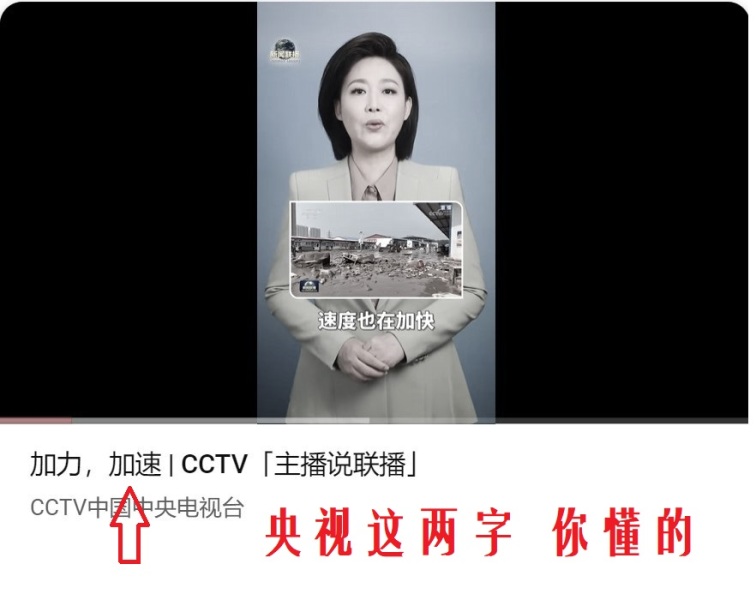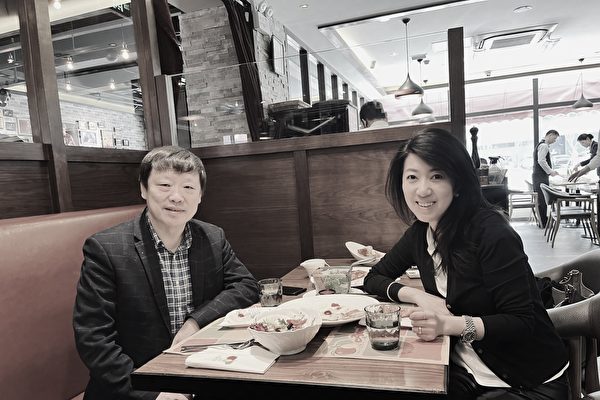The CCP Hold the Most Disastrous Two Sessions in History. (Illustration by People News)
[People News] As this article is being written, it is already October 20 in Beijing. At noon, the CCP mouthpiece Xinhua News Agency released a so-called “authoritative bulletin,” announcing that the CCP’s Fourth Plenary Session had officially begun. Party leader Xi Jinping delivered a work report, reading the draft of the 15th Five-Year Economic Plan (Discussion Version).
As the world’s largest surviving communist dictatorship and the controller of the world’s second-largest economy, the CCP’s meeting naturally draws intense global attention.
There are three main questions people are watching:
-
Will the Fourth Plenum bring the long-anticipated moment when Xi Jinping steps down and China’s political landscape is transformed?
-
If that happens, who will succeed him? Will the new leadership seek to preserve the CCP regime or follow a Gorbachev-like path?
-
Or will nothing unexpected occur — Xi clinging to power, forcing China to endure further suffering under CCP rule?
For the civilized world and ordinary Chinese people, the first two outcomes are most eagerly hoped for. If either comes true, it would fulfill a long-held wish: “At last, change — and where there is change, there is hope.”
But if, after four days, the result is what people least want to see — the centipede frozen stiff but not dead — everything proceeding as usual, the “Zhao family” elites going through the motions, and the vacancies left by purged Central Committee members quietly filled by factional compromise — it would only appear that the CCP has temporarily survived another crisis.
Yet, readers, do not be disheartened.
Generally speaking, the higher the expectation, the greater the disappointment. In truth, whichever of these three scenarios occurs should surprise no one. One must not forget: the fragility of the CCP’s totalitarian system cannot be strengthened by one plenary session, nor saved by swapping one autocrat for another.
Even if the third and “worst” outcome occurs — Xi maintaining his grip on power — neither he nor the Party can be reborn. They will only accelerate their collapse, racing madly toward disintegration. This process will be driven by Xi’s personal will. For the Chinese people, it simply means more suffering, more anger accumulating like fuel for an eventual explosion.
At midnight on the 20th, Xinhua posted a long article beating the drum for the CCP and Xi. It used the same grandiose, empty rhetoric — inflating the superficial figures of the “14th Five-Year Plan,” glossing over the disastrous results of the regime’s incompetence, and once again exalting the Party’s decayed “great, glorious, and correct” image while glorifying an inept ruler as a “great helmsman.”
The piece was full of lies yet meticulously packaged, brimming with sycophantic language without a trace of shame.
For example, editors proudly showcased drone footage of the unfinished ghost city of Xiong’an — a dark wasteland surrounding a few illuminated office towers — conveniently ignoring the empty streets and uninhabited apartment blocks.
Despite such embarrassment, Xinhua embellished the photo with a caption: “From an empty plot, to a blueprint, to a city — the city of the millennium plan strides confidently into the future.”
Xi’s rule during the 14th Five-Year Plan period has little to boast of, yet Xinhua must play along. Lacking substance, they resort to inflated statistics and drone imagery — ports “stacked with electric cars,” “trillions invested in semiconductor industries,” and the “Chinese economy maintaining steady growth.” Since the Party’s mouthpiece controls the narrative, and there is no oversight, they simply fabricate as they please.
They even quote “foreign media,” claiming that “many of the main indicators of the 14th Five-Year Plan and 2035 long-term vision have met or exceeded expectations.” But they dare not name which outlets, for fear of being exposed as Chinese propaganda proxies.
Still, the editors live in China and cannot be untouched by the nation’s economic chill. Between the lines, small cracks reveal themselves — perhaps by instruction from above, or perhaps deliberately.
Amateurs see the spectacle; insiders read the subtext. Party propagandists, after painting the grand picture, always slip negative realities into the latter half — to show “balance” while staying within political limits.
The writer deploys the full art of Party rhetoric — skillfully revealing the Party’s nakedness while allowing superiors to pretend not to notice.
The article notes that the start of the 14th Five-Year Plan in 2020 faced “storms and challenges” — namely, the sudden global pandemic.
Of course, Xinhua dares not admit the CCP unleashed the virus that poisoned the world. But the issue is too large to avoid, so they briefly mention it before lavishly praising Xi’s “systemic advantage” in “mobilizing national strength,” claiming he “effectively controlled the epidemic and promoted economic and social development.”
After more than three years of draconian lockdowns ordered personally by Xi — which caused countless deaths, shattered families, and devastated the economy — such praise only exposes the Party’s shamelessness.
Unable to hold Xi accountable for ruining the economy, Party media instead blame the United States for “suppressing China.”
The worsening livelihood crisis is undeniable, so they reluctantly admit the existence of “risks of falling back into poverty.” Yet, with their duplicitous tongues, they still parrot empty lines about “consolidating poverty alleviation achievements” and “safeguarding the bottom line of no large-scale return to poverty.”
In 2021, Xi personally declared that “China has eradicated poverty” — a proclamation Xinhua proudly broadcast. Barely four years later, they now admit widespread relapse into poverty? Xinhua has slapped Xi in the face while pretending loyalty — a true masterclass in flattery.
Even Xinhua cannot conceal that by 2024, after the pandemic ended, China’s economy not only failed to recover but plunged off a cliff — what they euphemistically call “weak market expectations and spreading domestic and international concerns.”
Since the word “decline” offends Xi, they replaced it with “slowing growth.” Among world media, only the CCP’s propagandists could merge “rising” and “falling” into one absurd euphemism.
Reading the entire article, one sees Xinhua desperately shielding Xi’s eyes, while gently soothing his ego — servility at its most refined.
Economic crises can be softened with propaganda, but political instability within a dictatorship cannot be concealed.
Over the past one to two years, Beijing’s political scene has been in constant upheaval, peaking just before the Fourth Plenum. Intensifying internal struggles have dealt severe blows to the CCP’s authoritarian structure itself.
Just three days before the session — on October 17 — nine senior generals, including Vice Chairman of the Central Military Commission He Weidong and former Political Work Department head Miao Hua, were expelled from both the Party and the military for “serious duty crimes.”
This mass purge of nine generals in one sweep is unprecedented in PLA history. Reports suggest four more are next in line.
The most humiliating part: since Xi took power at the 18th Party Congress, more than 160 generals he personally promoted have been purged. Nearly half of the current 35 active full generals have been branded corrupt.
In just over a decade, more generals have fallen under Xi than during the eras of Mao, Deng, Jiang, and Hu combined. Xi’s practice of defining loyalty as the only standard — promoting and purging at will — has made fear and silence the defining atmosphere of the PLA. This has cost him the military’s trust, leaving him virtually a “commander without troops.”
At this point, both Xi and the Party are extremely fragile. If even a single regiment or battalion of the PLA were to rise up and fire the first shot, the entire nation — with its shifting loyalties — could respond in unison. If that were to happen, the CCP regime could collapse overnight, becoming a second Soviet Union — far from a fantasy.
No wonder, in spring 2022, Xi told young cadres at the Central Party School:“If those we train no longer believe in Marxism or communism, if they no longer uphold the banner of socialism with Chinese characteristics, then we will face a tragedy like the dramatic changes in Eastern Europe, the fall of the Soviet Communist Party, and the collapse of the Soviet Union — a ‘homeland too painful to recall under the bright moon.’”
It seems even Xi himself has lost faith in his own path. The poetic line he quoted — from Li Yu, the last ruler of Southern Tang, lamenting his fallen kingdom — was ominous indeed. Xi’s warning for cadres to stay loyal to Marxism, to prevent the CCP from collapsing under his watch, may in fact be prophetic. His own words could prove self-fulfilling.
Now, through Xi’s and the CCP’s own regressive actions, that day draws ever nearer. The panic within the Party is impossible to conceal. At the recent National Day “celebration banquet,” everyone wore funeral faces — no joy, only dread.
The economy, the bureaucracy, the military — and above all, the fury of hundreds of millions of people — any one of these forces could topple the dictatorship.
Recently, two scandals have further fueled public anger: the case of Yang Lanlan, reportedly linked to Xi’s family, who injured people while drunk driving yet escaped trial and then mysteriously vanished; and the gruesome death of actor Yu Menglong, shrouded in layers of official cover-ups. Both cases expose the CCP elite’s corruption, arrogance, and moral decay — and both further ignite the people’s longing for change.
Therefore, regardless of what happens at the Fourth Plenary Session, ordinary citizens need not worry — the endgame is already set. The CCP’s fate is sealed. Its collapse could come at any moment — if not today, then tomorrow.
— The Dajiyuan △











News magazine bootstrap themes!
I like this themes, fast loading and look profesional
Thank you Carlos!
You're welcome!
Please support me with give positive rating!
Yes Sure!